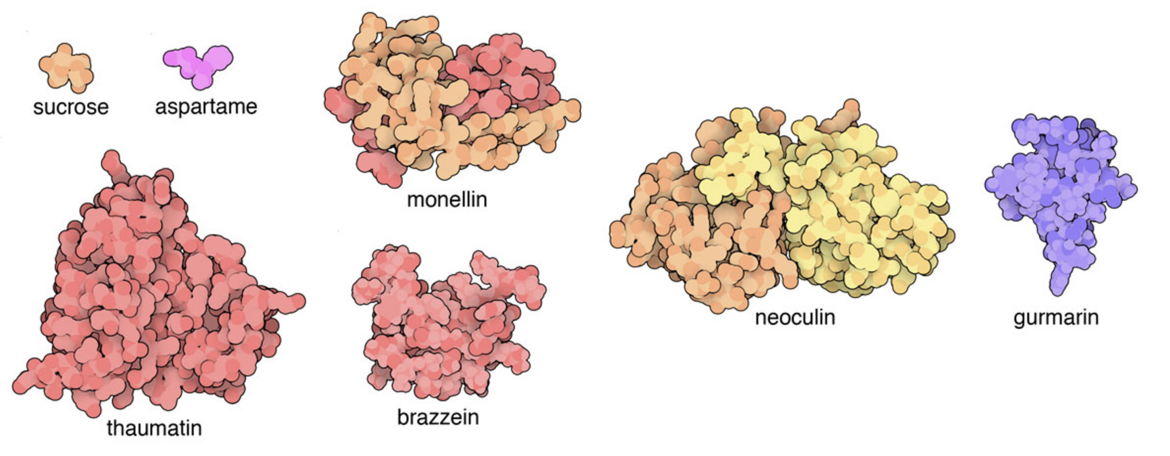News
PDB-101 Focus: Peak Performance
12/17 
Since 2014, PDB-101 has focused on different topics to help build a collection molecular stories around a particular theme. Past topics have included cancer and diabetes.
In 2024, PDB-101 will highlight the structural stories of Peak Performance: the structural biology of athletics and well-being.
Athletes require bodies that are the best that is possible, all the way from molecules to muscles. By understanding the structure and function of our molecules, athletes can ensure that they are performing at their peak. This knowledge also informs the ways that we all can live our best lives, at all stages of our lives.
Visit the PDB-101 Peak Performance Browser for resources such as:
 Sugar tastes sweet for a good reason: it’s a fast and easy source of energy for our cells, so evolution has ensured that we’re happy when we eat it. Cells in our taste buds have specific sensors for sugar, rewarding us with a pleasant taste for sugary foods. However, other molecules can trick these sensors, giving us the reward but without the calories. These include small artificial molecules that resemble sugar, such as aspartame, and a variety of sweet-tasting proteins.
Sugar tastes sweet for a good reason: it’s a fast and easy source of energy for our cells, so evolution has ensured that we’re happy when we eat it. Cells in our taste buds have specific sensors for sugar, rewarding us with a pleasant taste for sugary foods. However, other molecules can trick these sensors, giving us the reward but without the calories. These include small artificial molecules that resemble sugar, such as aspartame, and a variety of sweet-tasting proteins.Visit Molecule of the Month: Monellin to learn more.














